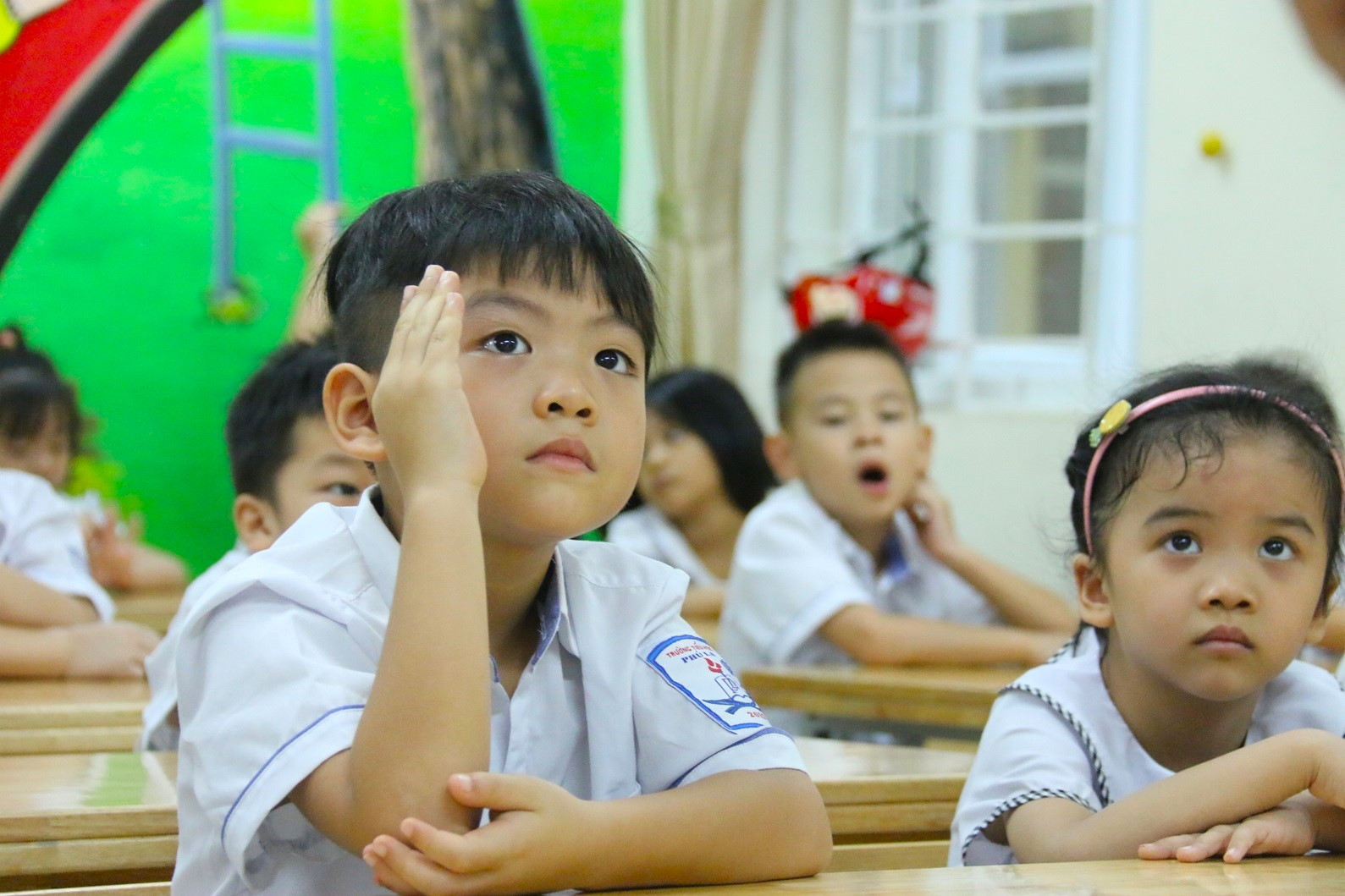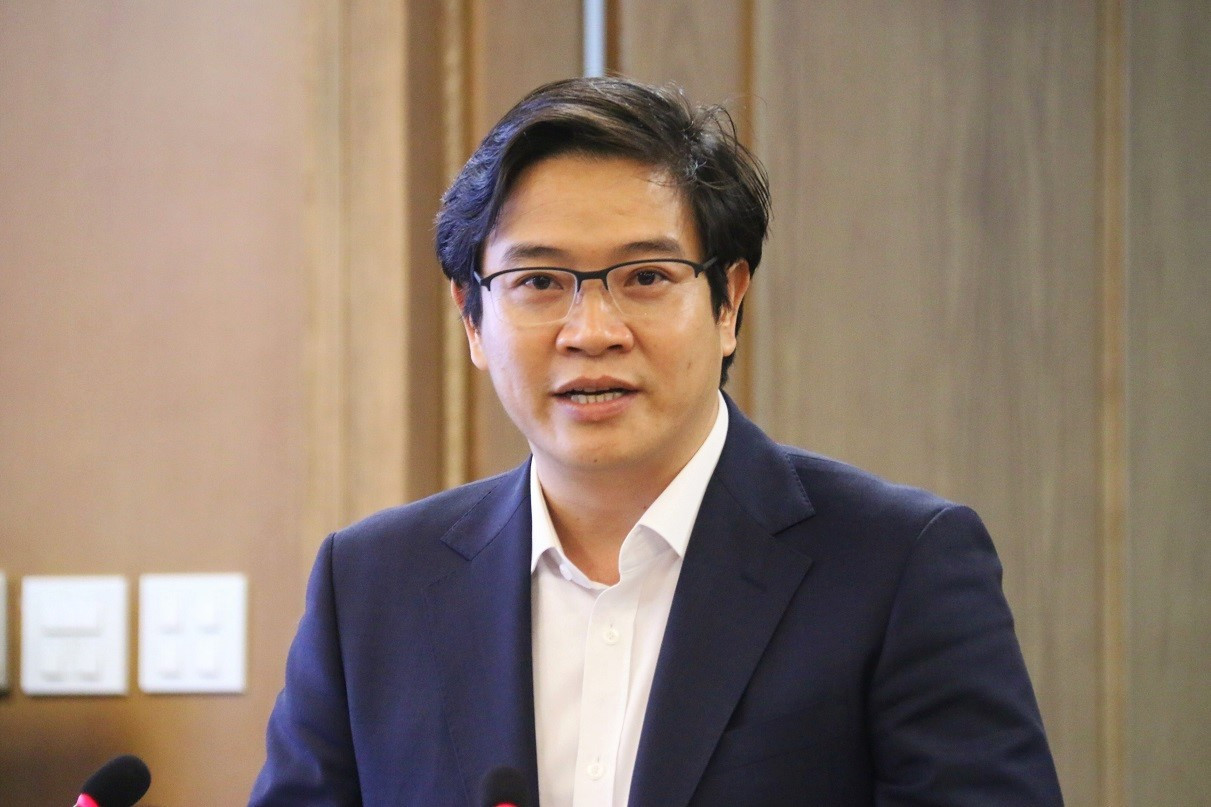The representative of the Ministry of Education and Training (MOET) explained and expressed his opinion regarding parents' concerns when their children get 9 or 10 points in all subjects but still do not achieve excellence.

Ms. PM (a parent whose child is studying at a prestigious primary school in Cau Giay district, Hanoi) said that for the past few days, her husband and she have been unable to eat or sleep well because they are thinking about their son who has just finished first grade and is not considered an excellent student, while both his Math and Vietnamese scores are 9 and 10 in both semesters.
“Getting 9 or 10 points but not being an excellent student, what should we do? What my husband and I worry about the most is not the need for excellent student achievements, we worry that when transferring to another level, if the target schools set admission criteria as being an excellent student for several years in a row, our child will suddenly be eliminated, despite the same score,” said Ms. PM.
Regarding this issue, Mr. Thai Van Tai - Director of the Department of Primary Education, Ministry of Education and Training, said that in 2020, the Ministry of Education and Training issued Circular 27 regulating the assessment of primary school students. The innovative viewpoint of this circular is the result of a process of research and adjustment of the assessment method for primary school students to reduce unnecessary pressure, and to be encouraging and humane.
The difference compared to the previous assessment method is that the assessment is adjusted in the direction of reducing scoring, increasing comments, and focusing on process assessment to closely monitor, support, and encourage students to progress compared to themselves.
The regulations on primary school student assessment in the above circular are also consistent with the goal of the 2018 General Education Program, which is to develop students' capacity and qualities through the requirements of subjects and educational activities designed for each class in the level.
In response to the anger of some parents about students achieving high results in major subjects such as Math, Vietnamese, and Foreign Languages but being assessed as "complete" in subjects such as Music and Fine Arts, and that was the reason why their children lost the excellent title, Mr. Tai explained.
According to Mr. Tai, the requirement of the 2018 general education program is to assess students’ abilities and qualities based on the designed subjects and activities. A capacity may be mainly demonstrated in one subject but is still related to other subjects. Therefore, the thinking about main and secondary subjects needs to change.
"The assessment innovation for primary school students is built in the direction of reducing scoring and increasing process comments. Therefore, there will be subjects with periodic scoring tests and subjects with only comments," said the Director of the Department of Primary Education.
In grade 1, only Vietnamese and Math have periodic tests with scores, in higher grades, there are some other subjects. Subjects that are scored are instrumental subjects for students to use in later classes, subjects with high scientific content. Subjects that are only evaluated by comments are special subjects, with the purpose of helping students experience knowledge. But not because they are not scored as secondary subjects.
Mr. Tai added: "In the final grades of primary school, the number of subjects for scoring is increased compared to the first grades because there are new subjects in grades 4 and 5 that require quantitative assessment. In addition, the change is also intended to help students gradually approach the assessment method at the next level of education without feeling disappointed."

However, some parents also argue that special subjects such as Fine Arts, Music, Physical Education, etc. can only be done well by gifted students. So, is the regulation that "doing well" in these special subjects to be considered an excellent student too demanding for ordinary students?
Mr. Tai said that in the 2018 general education program, special subjects are not to train students to follow as before or to train gifted students, but to help students gain understanding and appreciation of art to foster healthy emotions for them.
“For example, in the subject of Music at the primary level, a student with a good singing voice does not necessarily achieve good results because the subject requires students to have basic knowledge, aiming to form emotions and the ability to perceive music. Similarly, in the subject of Physical Education, students do not just imitate models, but learn to understand the principles of movement, understand their own physical condition, the foundation of health... From there, students can choose a suitable type of movement.
The requirements for each subject and class have been considered to be suitable for the psychology of each age group and for the general student body, not just for gifted students," said Mr. Tai.
Mr. Tai also emphasized the purpose: “Praise must be for the child, not for the adult. When the purpose of “praise” is to serve the wishes and expectations of adults, we will never be able to solve the situation of putting pressure on the child.
Regarding this, I also hope that agencies, organizations, and associations for the promotion of learning... when rewarding students who are children of officials and employees will also study the regulations of the Ministry of Education and Training to have appropriate regulations, consistent with the current spirit of evaluation and reward.
How to praise so that children are happy and encouraged, not praise that makes parents upset and puts more pressure on the child. This is also what the Ministry of Education and Training wants society and parents to understand and accompany.
TH (according to Vietnamnet)